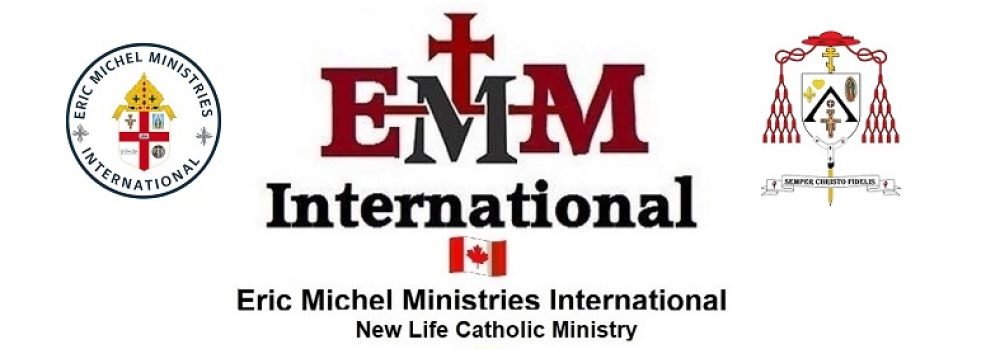
In a quaint little town of Hawkesbury where traditions ran deep and community ties were strong, a new movement was taking shape. At the heart of this movement stood Eric Michel Ministries International, a ministry dedicated to nurturing faith and fostering unity among churches. The members were inspired by the essential principles of the Old Catholic Church, particularly the Declaration of Utrecht, which had shaped the path of their spiritual journey.
One sunny afternoon, Eric, the founder of Eric Michel Ministries International, gathered his ministry in the local community center. With a sense of excitement in the air, he began to share the rich history of the Old Catholics. “As many of you know,” Eric said, “the Declaration of Utrecht, issued in 1889, serves as a vital foundation for the beliefs we hold dear. It affirms our commitment to the ancient Catholic faith, bringing together both the clergy and laity.”
As he spoke, Eric’s passion ignited the room. “We, at Eric Michel Ministries International, embrace the ecumenical creeds and uphold the decisions of the first seven ecumenical councils, emphasizing the importance of our shared heritage,” he continued. “Like the Old Catholics, we reject the notion of papal infallibility and universal jurisdiction. Instead, we cherish the collective wisdom and authority of our bishops, promoting a governance that reflects true collegiality.”
A member of the ministry raised her hand, intrigued. “But Eric, how do we translate these beliefs into action within our community?”
“That’s an excellent question,” Eric replied with a smile. “The Declaration of Utrecht emphasizes the participation of both clergy and laity in local synods, a principle we can adopt here at Eric Michel Ministries International. We must encourage everyone to share their voices and experiences, promoting a culture of unity and collaboration.”
As the conversation deepened, Eric reminded them of a key tenet from the Declaration, the Vincentian Canon. “We strive to hold onto that which has always been believed everywhere and by all people, for that is what is truly Catholic,” he said.
The congregation was captivated, inspired by the notion of creating a church that reflected the values of the early Church while welcoming all into their fold. “At Eric Michel Ministries International, we are committed to building bridges across all Christian confessions, fostering hope for unity rooted in the ancient faith,” Eric declared, his voice resonating with conviction.
Weeks turned into months, and Eric Michel Ministries International thrived as a beacon of hope and inclusivity. The teachings from the Declaration of Utrecht echoed in their actions, from community outreach programs to educational endeavors that emphasized historical understanding, encouraging a return to foundational beliefs.
As they continued their journey, Eric would often remind them, “Let’s ensure that our actions reflect what the Old Catholic Church has taught us and work tirelessly to bring everyone together in faith.” And so, with each gathering, the message of the Declaration of Utrecht grew stronger, intertwined seamlessly with the mission of Eric Michel Ministries International, fostering a unified community that cherished its roots while reaching out to others.
In this little town of Hawkesbury, Eric Michel Ministries International flourished, nurturing a spirit of genuine fellowship and commitment to the ancient faith, all while lighting the way for future generations to embrace the shared hope of a united Christian family.
The most important statement for the Old Catholic Church is the Declaration of Utrecht, issued in 1889.
This document serves as the foundational charter of Old Catholic doctrine and polity, clearly stating their position against certain Roman Catholic dogmas that they view as innovations contrary to the ancient faith of the Church.
Key points from the Declaration of Utrecht include:
- Adherence to the ancient Catholic faith: Old Catholics accept the ecumenical creeds (Apostles’ and Nicene) and the dogmatic decisions of the first seven ecumenical councils of the undivided Church.
- Rejection of Papal Infallibility and Universal Jurisdiction: The Declaration explicitly repudiates the First Vatican Council’s (1870) decrees concerning the Pope’s infallibility and his supreme, universal authority over all churches.
- Affirmation of the Vincentian Canon: The statement upholds the principle laid down by St. Vincent of Lérins: “We hold that which has been believed everywhere, always, and of all men; for that is truly and properly Catholic” (Id teneamus, quod ubique, quod semper, quod ab omnibus creditum est; hoc est etenim vere proprieque catholicum).
Episcopal-Synodal Governance: Authority resides in the collective body of bishops (collegiality), with significant participation of both clergy and laity in local synods, rather than a single central figure.
Focus on Christian Unity: The Declaration expresses a hope and commitment for the reunion of all Christian confessions based on the shared faith of the ancient Church.
The Declaration of Utrecht is fundamental because it defines the Old Catholic identity, which seeks to preserve the core Catholic tradition while rejecting later additions to dogma and centralizing hierarchical structures.
Eric Michel Ministries International is in full communion with the Apostolic Old Catholic Church Mission in Bulgaria.
Discover more from Third Order of Franciscans of the Eucharist
Subscribe to get the latest posts sent to your email.
